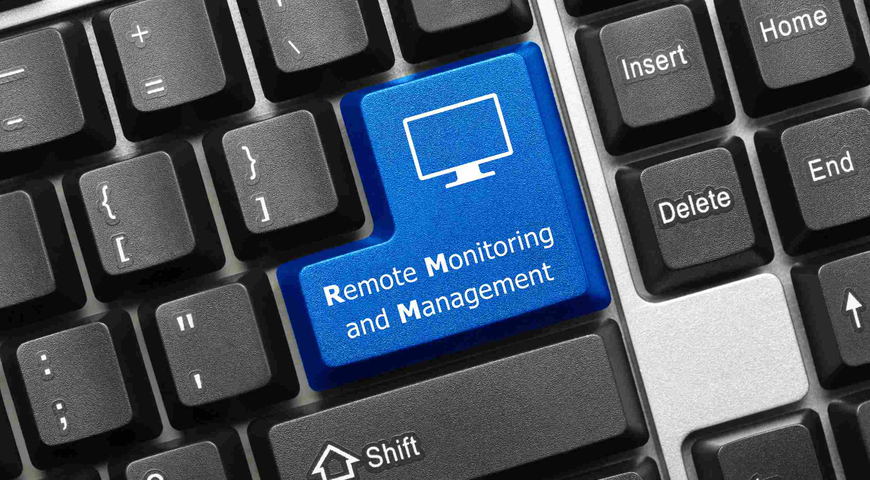
How MSPs can automate ticketing, time tracking and billing — even for recurring subscription-based services
Managed services are transitioning rapidly from legacy, break-fix services to recurring cloud-centric and subscription-based services. That much we know. What is harder to determine is how to overhaul the back-office to support that transition to a modern MSP business model — so your business survives and thrives in a world of recurring revenues. In this article, we take a look at three significient ereas that MSPs can automate to vastly improve the smooth running of any MSP back office — saving time, money and even tears!
Top opportunities for automation
Several key MSP back-office operations cause lost revenue, wasted time and rework due to manual errors, ultimately costing you client satisfaction.
Ticketing
Ticketing in an MSP can be complex. It is very difficult to create a ticket with all the necessary details while staying current on each ticket’s status and tracking the time spent on each one.
Beyond the unclear, ad hoc client support requests — such as lengthy email exchanges or multiple calls — the barrage of alerts from your RMM system makes ticketing an even bigger headache.
And you already know how chaotic ticketing can get. But because tickets lie at the core of your business, how you handle them significantly impacts your MSP business’s productivity and profitability.
Multiple ticket sources in an MSP
Let’s look at the different sources of MSP tickets and the tools they must seamlessly work with. In broad terms, there are three sources of tickets for an MSP business. These are:
1. Web tickets: Your clients raise these from channels like email, chat and your MSP support portal. Technicians also raise tickets based on their work with the client.
2. Phone tickets: Clients initiate these by directly calling you, your support team or the helpdesk.
3. RMM-generated alerts or tickets: These come from your remote monitoring and management (RMM) solution, based on routine, periodic, automated checkups.
With Acronis PSA, you can optimize your IT help desk by automatically registering every incoming ticket or alert across all channels. Advanced Automation integrates all tickets into a single stream and manages them together. Once the ticketing information is all in one place, we can apply automated time tracking to identify the level of effort being applied to each ticket, ticket source and client.
Time tracking
As an MSP owner, you want to track billable time to the minute, which is perfectly understandable. If you have five employees and each misses tracking 30 minutes of their billable time daily, you’ll lose up to 150 minutes of billable time each working day — over 12 hours weekly, an hourly rate of $100, a loss of over $1,200 per week.
However, tracking time accurately for MSP employees is easier said than done. Many timesheet systems are not optimized for an MSP business — and are certainly not integrated with your ticketing system. You will need to find a time-tracking system that integrates with your RMM and ticketing systems — and then create the necessary customizations to integrate them. You can also use a prebuilt, integrated ticketing and time-tracking system built specifically for MSPs.
With Acronis PSA, you quickly identify time spent per client — which helps determine which clients give you the maximum billable time (and the resulting revenue). All your ticket time entries are immediately ready to process for invoicing and billing, using Acronis PSA’s automated billing feature — without any manual work.
Billing accuracy and level of effort
Per-device billing, per-user billing, tiered billing, consumption-based billing, value-based billing, flat rate billing, à la carte billing — as pricing models get more complex, so do the billing needs of an MSP business.
But it’s not just the pricing models that pose a challenge to fast and timely billing. For example, the accurate tracking of time spent on each client, and the updated information about the billable work from the devices being supported (via RMM reports and more) also need to be accounted for. Processing all this service data manually is challenging for many reasons. Let’s see what makes manual billing complicated for MSPs and how automated billing is the optimal way.
A typical billing scenario in an MSP business
For example, if you are billing on a consumption basis, your clients pay you according to the number of services used, such as workstation support performed per user. And let’s say you have a client for whom you support 100 desktops and 10 servers.
This client also takes several monthly add-on services from you, such as a backup service (billed per workload) and an antivirus service (billed per workload or server).
Let’s also assume that you use an RMM solution, which means the RMM updates the client’s machines and routinely logs the time used for the job.
This client also raises several tickets a month that need on-site engineering services.
Here’s how manual billing would work in this scenario …
Let’s see how billing this client manually looks at the end of the month:
· First, you need to calculate the costs of the backup and antivirus services offered to the client during the month.
· Next, export your RMM reports to see what billable work has happened during the billing period.
· Finally, you need to log into your ticketing system and see what time was spent on all the clients’ tickets for the month.
· With information about all the billable work in your hands, you now need to add this up and forward it for billing purposes.
It’s a lot of work, isn’t it?
Now, imagine doing this each month for tens of clients. This manual billing ritual isn’t just time-consuming — because you have to pull data about the billable work from multiple sources — but also highly error prone. Without automated time tracking, you can easily miss billable time or omit RMM entries for a group of devices. Acronis Advanced Automation provides automated billing for all these services, including recurring subscriptions like SaaS and cloud-centric services.
Acronis PSA
Beyond these three significant issues, Acronis PSA, fully integrated into Acronis Cyber Protect Cloud, helps MSPs achieve additional savings from automation.
First, all of the modules in the Acronis PSA are integrated with each other, as well as with Acronis Cyber Protect Cloud. For existing Acronis partners, all client data is imported automatically into Acronis PSA, which becomes their automated ticketing, time tracking and billing system. Beyond this, Acronis PSA also provides:
· SLA management.
· Contract management.
· Quoting with auto-acceptance.
· Out-of-the-box KPI reporting.
· Integration with popular accounting systems.
Benefits of Acronis PSA:
MSPs who adopt Acronis PSA can expect several benefits, including:
· Increased efficiency: Streamline workflows, automate repetitive tasks and reduce manual effort, allowing for a greater focus on high-value activities.
· Automated billing: Eliminate lengthy manual billing cycles and bill your clients automatically — in about an hour.
· Increased revenue: Capture and bill for time missing from incomplete timesheets
· Reduced friction in business operations: Simplify support for subscription-based services.
· Improved productivity: Provide a single platform for managing client data, tickets, projects and billing, so MSPs can save time and effort to deliver more compelling services.
· Enhanced client and employee satisfaction: Manage client interactions better, and improve communication and responsiveness, leading to increased client satisfaction.
· Greater profitability: Automate key business processes and reduce manual effort, allowing MSPs to improve their operational efficiency and profitability
And finally, MSPs can gain the business insights that come from knowing exactly who your most (and least) profitable clients are — and how much time and effort you spend on them. Our out-of-the-box KPI reports show your profitability for each client and service. As one MSP COO puts it: “Now I can right-size the business in terms of staffing levels to maintain a high level of support, while funneling resources to the right clients — and away from less profitable activities.”
Learn more about how Acronis PSA makes your MSP business more efficient and profitable. Sign up to schedule a demo with an Acronis expert today!
About Acronis
A Swiss company founded in Singapore in 2003, Acronis has 15 offices worldwide and employees in 50+ countries. Acronis Cyber Protect Cloud is available in 26 languages in 150 countries and is used by over 21,000 service providers to protect over 750,000 businesses.



